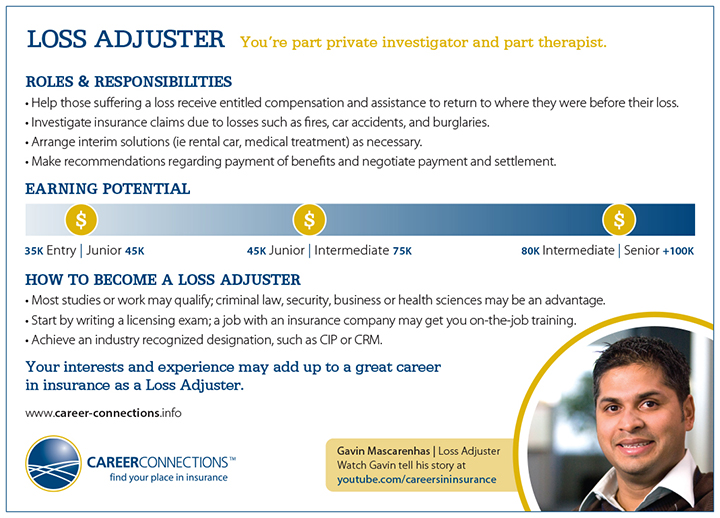Is this career for me?
The following qualifications may be required for a career as a losss adjuster. Do these statements describe you?
- At minimum, a university degree or specialized college diploma in criminal studies, law and security or business administration is required
- Must have, or be willing to attain, appropriate license requirements
- Understanding of criminal or civil investigation
- Ability to analyze medical reports
- Computer proficiency
- Strong interpersonal and communication skills
- Exceptional negotiation, decision-making, problem-solving and investigation skills
- Understanding of, or working knowledge of, current industry legislation
- Analytical and thorough
- Aptitude in dispute resolution
If you answered yes to these statements, then a career as a loss adjuster might be the perfect fit!
How do I get there?
A variety of skills sets are necessary for the Loss Adjusting profession. Your experience in one of the fields listed can lead you to a successful career in the insurance industry.
Law Enforcement:
Your formal legal education and the skills you have gained from your experience in the legal industry may make this career an excellent choice. Your experience working with legal documents and your knowledge of Canadian legislation may help you succeed. You will be required to meet the appropriate licensing requirements in your province if you are planning on working with an independent adjusting firm. A greater understanding of insurance will also help you to excel in this role - set a goal to take the General Insurance Education (GIE) certificate or the Chartered Insurance Professional (CIP) designation offered by the Insurance Institute while you are working in the industry.
Health Sciences:









